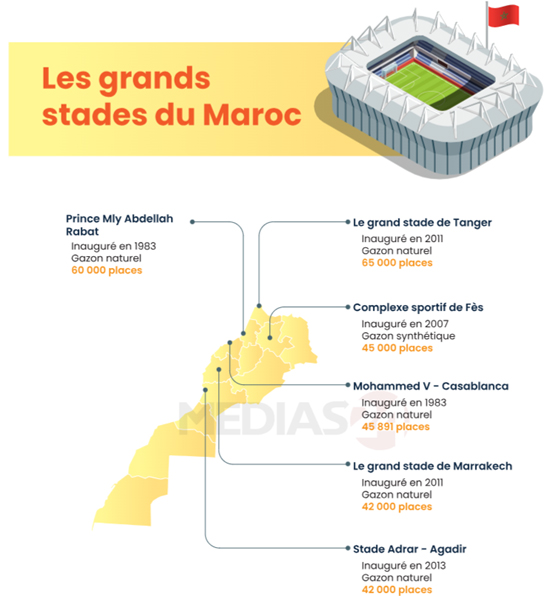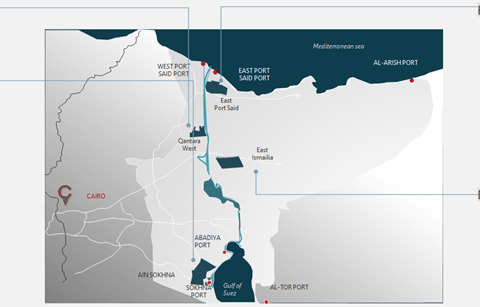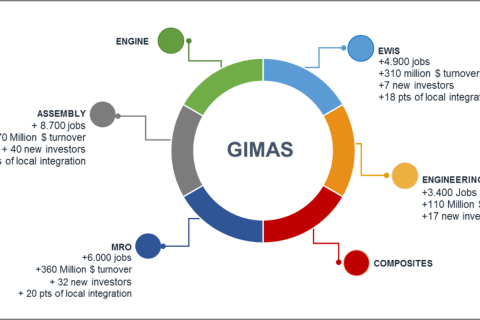
The 2030 World Cup will be a unique event for Africa: for the first time, the continent will participate in co-hosting a World Cup with Europe. Morocco, alongside Spain and Portugal, will host several matches (including a likely opening match), placing the country in the global spotlight.
This joint organization is undertaking a vast sports and logistics infrastructure project. Morocco has unveiled an ambitious roadmap aimed at modernizing its facilities and building new complexes that meet FIFA standards:
A new large stadium in Casablanca, with a capacity of 93,000 seats, is at the heart of the project. It will be the largest stadium in Africa, featuring ultra-modern architecture, VIP boxes, state-of-the-art media areas and a partially covered roof system.
Renovation of existing stadiums:
- The Grand Stade de Marrakech will be equipped with new stands, immersive technologies for spectators and environmental standards (solar energy, water recycling).
- The Grand Stade de Tangier will see its capacity and facilities strengthened to host high-level matches.
- The Prince Moulay Abdellah Stadium in Rabat will undergo a complete renovation, with particular attention paid to accessibility for people with reduced mobility and the quality of the pitches.
In addition to the stadiums, the country is investing in several state-of-the-art training centers, which will house national teams and referees, with integrated accommodation, gymnasiums, swimming pools and medical areas.
On the logistical level, the 2030 World Cup is an opportunity for Morocco to accelerate the modernization of its infrastructure
Extension of TGV lines: the high-speed network will be extended to Marrakech and Agadir, to connect these cities in the north of the country in a shorter time.
- Development of highways and expressways, in particular the axes connecting the main host cities to airports and train stations.
- Modernization of airportsfrom Casablanca, Marrakech, Tangier and Agadir, with an increase in their capacity and the integration of biometric technologies to streamline passenger flows.
The hotel sector is also the subject of a vast program: new hotels, residences and supporters’ villages are planned, with strict criteria in terms of ecology and accessibility.
Finally, Morocco is committed to making this World Cup a model of sustainability: eco-responsible construction, low-carbon mobility, reversible infrastructure and actions for a World Cup with a low carbon footprint.
By hosting part of the 2030 World Cup, Morocco aims to demonstrate that it is ready to take on the challenge of a global event and leave a lasting legacy for sport and the country’s development.




